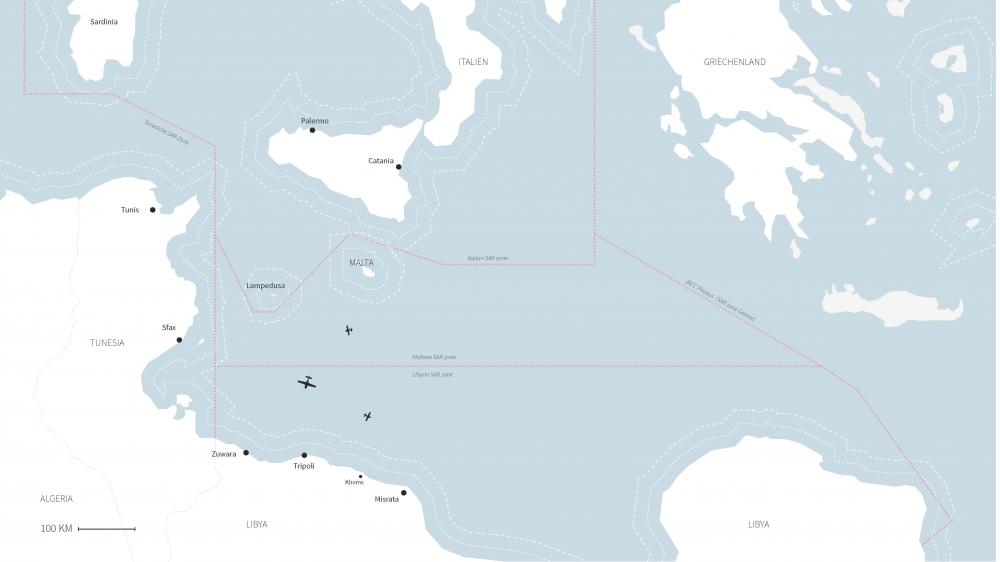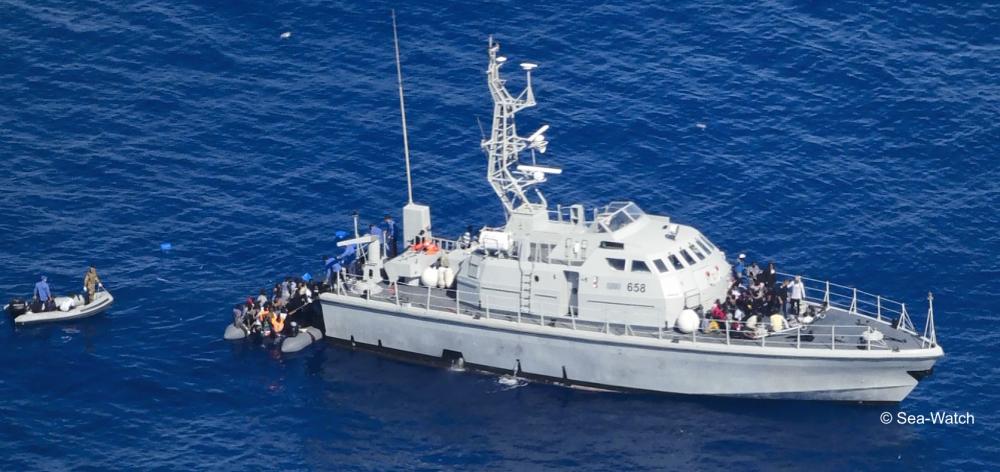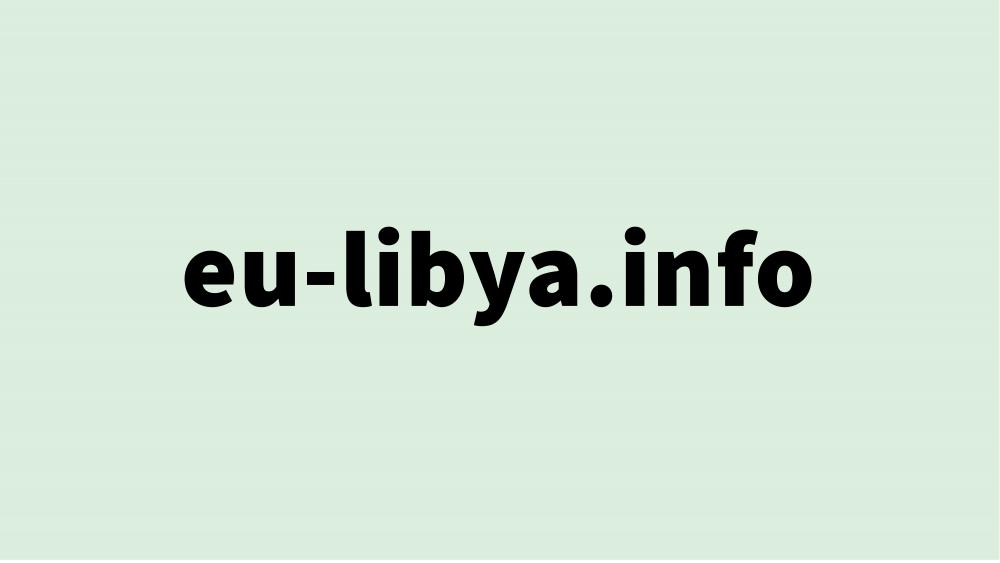EU Libya collaboration - pull-backs by remote control
Together with AlarmPhone, Sea-Watch and Mediterranea, we launched the report “Remote control: the EU-Libya collaboration in mass interceptions of migrants in the Central Mediterranean” denouncing the support brought to the so-called Libyan Coast Guard by EU member states to control migration in and around the Central Mediterranean. The EU’s increasing outsourcing of responsibility for rescue has led to mass pull-backs of migrants to Libya by ‘remote control’ from EU aerial assets.
Alarm Phone, borderline-europe, Mediterranea and Sea-Watch have directly witnessed and documented illegal push- and pull-backs to Libya coordinated by European authorities, such as Frontex and EUNAVFOR Med, and implemented by the so-called Libyan Coast Guard, an EU-funded and trained group of militias with a track record of blatant human rights violations and collaboration with people smugglers.
On June 17 we presented the report in an online discussion via the UnitedWeTalk platform. Based on their first-hand observations, activists from the emergency hotline AlarmPhone and the Search and Rescue NGOs Mediterranea and Sea-Watch,together with us, reported on how the aerial collaboration between the EU and Libya works operationally and how it contributes to the mass interception of fleeing migrants. While our guest speakers, Sally Hayden (journalist) and Yasha Maccanico (Statewatch) touched upon recent developments in the Libyan camps and pointed out the accountability of European actors. Considering the ongoing civil war and countless reports of torture, rape and further degrading treatment taking place in detention centers, it is clear that Libya cannot be considered a safe country for people on the move.
You can watch the full online discussion here.
The report contains the reconstruction of three specific search and rescue (SAR) events which ended in interceptions and returns to Libya by the so-called Libyan Coast Guard. It provides the legal background of the violations incurred and an analysis of how the collaboration between the EU and the so-called Libyan Coast Guard works operationally, with a focus on aerial coordination. The reconstructions are based on first-hand observations at sea, and include overheard radio communications between different actors, such as European authorities and their Libyan proxies as well as calls for help from people in distress at sea.This report provides exclusive data and an analysis of how the collaboration between the EU and the scLYCG works operationally, with a focus on the aerial coordination provided by EU assets and authorities. It also proves that if NGOs were permanently barred from operating at sea, few of the criminal practices reported here would be known.
The EU is responsible for remote controlling push-backs to Libya through aerial surveillance and coordination. EU authorities have further instrumentalized the COVID-19 crisis to normalise already existing practices of non-assistance at sea and continue to violate the non-refoulement principle at sea. Under no circumstances can the COVID-19 pandemic justify the push- and pull-back of fleeing migrants to Libya.
Based on the unlawful practices evidenced in the report, we jointly call for:
-
The immediate revocation of the Libyan Search and Rescue Region (SRR).
-
An end to collaborations between EU institutions and Member States with Libyan authorities, including the so-called Libyan Coast Guard, due to their track record of human rights violations and overlapping relations with civil war actors and smugglers networks.
-
An end to EU aerial surveillance facilitating pull-backs conducted by Libyan militias.
-
A stop to European Rescue Coordination Centres’ violation of international conventions by ignoring distress calls, delaying rescues, and coordinating pull- and push-backs to Libya.
-
The respect of the 1951 UN Refugee Convention, and in particular the non-refoulement principle, also during the COVID-19 pandemic.
-
A commitment to human rights principles in SAR operations, including those taking place in the disputed Libyan Search and Rescue Region.
-
The establishment of safe and legal routes for flight, ensuring the freedom of movement to all as a fundamental right.



